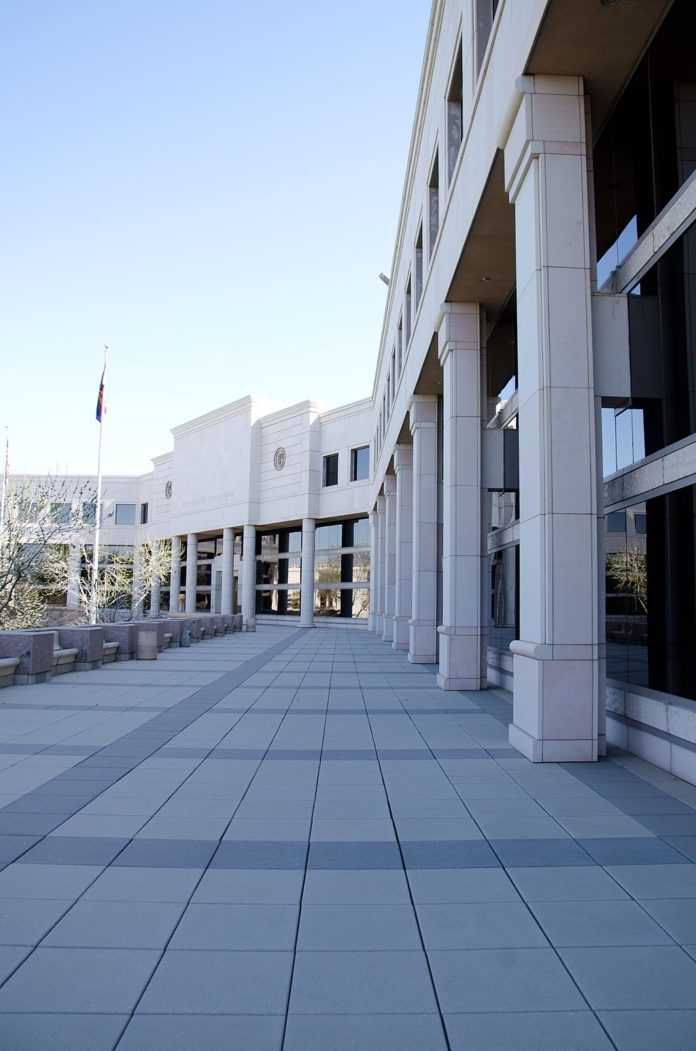
A judge Friday ordered a citizen’s initiative that would have banned surprise medical billing and barred insurers from discriminating against people with preexisting medical conditions blocked from appearing on Arizona’s November ballot.
Maricopa County Superior Court Judge Pamela S. Gates tossed the initiative after determining that more than 150,000 of the voter signatures initiative proponents collected to quality it for the ballot were invalid for various reasons. They include faulty registrations for paid circulators, other technical issues and a large number of circulators who failed to appear at a five-day trial that ended earlier this week.
That left proponents, who the Secretary of State’s office determined had turned in more than 385,000 signatures that could be checked using a random sample, below the 237,635 needed to make the ballot.
Gates also found that the 100-word summary of the initiative that voters who signed petitions were shown was materially misleading and created a significant danger of confusion.
She wrote that the summary said the initiative would ban insurers from “discriminating based on pre-existing conditions” but was misleading because it only applied to individual insurance policies and not group policies provided by employers, who insure the majority of people with private insurance.
Gates also found that a provision requiring raises for direct-care hospital workers was misleading because it said it would set new “minimum wages” for those workers by requiring 5% raises in each of the next four years. That was misleading because many workers already earn well above the state’s minimum wage.
“The remedy for failure to satisfy statutory prerequisites is to enjoin the measure from appearing on the ballot,” Gates wrote.
Opponents of the initiative cheered the ruling, which proponents said they will appeal directly to the Arizona Supreme Court.
“The proponents attempted to jam a number of health care related items into one initiative that, if passed, would have forced tremendous cost increases onto patients and hospitals,” said Garrick Taylor, an executive with the Arizona Chamber of Commerce and Industry who was speaking for a coalition of opponents. “At a time when our health care system is under severe strain due to the pandemic, out-of-state labor interests sought to impose duplicative regulations that would only drive up the cost of health care, resulting in the elimination of critical health care jobs and risked hospital closures.”
The measure was supported by a committee mainly backed by the Service Employees International Union-United Healthcare Workers West, a California-based union that funded most of the $6.7 million raised to promote the initiative.
“We are disappointed by the ruling. Arizonans continue to suffer with millions of dollars of surprise medical bills and remain vulnerable to a lawsuit that could eliminate preexisting condition protections,” said Rodd McLeod, spokesman for the committee, Healthcare Rising Arizona. “That is why we plan to appeal to the Arizona Supreme Court.”
Besides barring insurers from charging people with preexisting conditions higher rates, the Stop Surprise Billing and Protect Patients Act would ban higher charges if a patient uses an out-of-network provider, requires 5% raises per year for four years for workers in private hospitals and would set hospital safety standards for infection control.
All four initiatives that appeared to have filed enough signatures for the November ballot have faced legal challenges.
A judge blocked an initiative that would tax wealthier Arizonans to boost school funding from the ballot, while two other judges rejected challenges to measures that would implement criminal sentencing reform and legalize recreational marijuana.
Those three rulings also are being appealed directly to the Supreme Court, which faces an Aug, 21 deadline to rule because of a Secretary of State deadline to print election publicity pamphlets that are mailed to voters.
Republished with the permission of the Associated Press.












